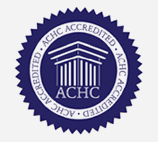 Quick Contact
Quick Contact

- Infusion Pharmacy Services
- Ambulatory Infusion Center
- Infusion Nursing Services
- Specialty Pharmacy Services
Total Parenteral Nutrition is a life-saving therapy which can be safely and conveniently administered in the patient's home. The goal of TPN is to provide the patient with neededprotein, calories, electrolytes, vitamins and other nutrients to maintain or replenish the bodycell mass. TPN therapy must be administered intravenously through a surgically implantedcentral venous catheter.
Common diagnoses which call for TPN therapy are G.I. Tract cancer, ulcerative colitis, Crohn'sdisease, short-bowel syndrome, pancreatitis, cystic fibrosis, malabsorption syndrome,inflammatory bowel disease, massive bowel resection, persistent intestinal fistulae, trauma-related G.I. complication, and other conditions which severely limit intestinal function.
With the development of sophisticated delivery systems, pain management regimens can besafely and conveniently administered in the patient's home. Patient Controlled Analgesia andother forms of continuous infusion provide the patient with safe and reliable methods of self-administration. These methods utilize a variety of permanent or temporary access routesincluding intravenous, subcutaneous, epidural, and intrathecal.
Common diagnoses which call for home IV pain management are lower back pain, neck pain,chronic headaches, arthritis, rheumatism, TMJ, post-surgical pain, advanced cancer, AIDS,endstage disease states, and other conditions resulting in severe, chronic pain.
Home IV antibiotic therapy is an excellent alternative for many patients whose medical conditions warrant discharge from the hospital and, at the same time, require prolonged antibiotic therapy. Common diagnoses which call for home IV antibiotic therapy are cysticfibrosis, wound infection, osteomyelitis, AIDS-related infections, pneumonia, catheter infections, cellulitis, otitis media, STD's, endocarditis, septic arthritis, urinary tract infections, prostatitis, and respiratory tract infections.
Patients sometimes lose considerable amounts of body fluids containing essential electrolytes and other nutrients, and become dehydrated. Often such patients require hospitalization for two to three days for the administration of an intravenous solution to replenish the electrolytes and nutrients that have been depleted. In many cases, however, stabilized patients can have their IV hydration therapy administered at home.
Dehydration often occurs during pregnancy when women experience severe "morning sickness", among elderly patients when ill, and among athletes who participate in their activities in very hot weather.
Patients with certain types of cancer are often hospitalized for several days so that they may receive intravenous chemotherapy. However, in many instances chemotherapy can be safely and conveniently administered in the patients' own homes.
Patients often require the use of new, innovative, and specialty therapies. Etown Vital Care will work with referral sources to provide specialized services for patients with HIV diseases, patients requiring gamma globulin therapy, patients requiring erythropoietin therapy, and other new and innovative therapies.










